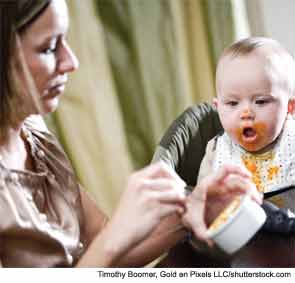A “Dynamic” Process
The German study “confirms that taste is a dynamic process, which typically matures with age through adolescence and which is directly influenced by hormonal factors,” said Dr. Pribitkin. It’s “hard to separate hormonal and genetic factors, however. Are women better tasters because they are genetically female, because they have more estrogen or because women are often the cooks at home and develop these qualities more readily than men?”
Explore This Issue
April 2013For otolaryngologists, understanding more about what causes changes in taste sensitivity may help with the development of new therapeutic strategies for patients with loss of taste sensitivity, said Adrian Williamson, MD, an otolaryngologist at the Arkansas Otolaryngology Center in Little Rock. “Loss of taste is a difficult and frustrating problem for both the patient and the physician,” he added.
The German study illustrates a correlation between weight status and taste sensitivity; however, it does not explain what is at the root of diminished taste sensitivity—a clinically meaningful question, said Alison Ventura, PhD, an assistant professor in the department of nutrition sciences at the Drexel University College of Nursing and Health in Philadelphia.
“Are some people born with a poorer ability to detect tastes, which predisposes them to overeating and obesity? Or, do overeating and obesity lead to diminished taste sensitivity?” she asked. “A longitudinal study is needed to better understand how and why these diminished taste sensitivities develop, how they relate to the development of obesity and what implications they have for long-term health outcomes.”

Leave a Reply